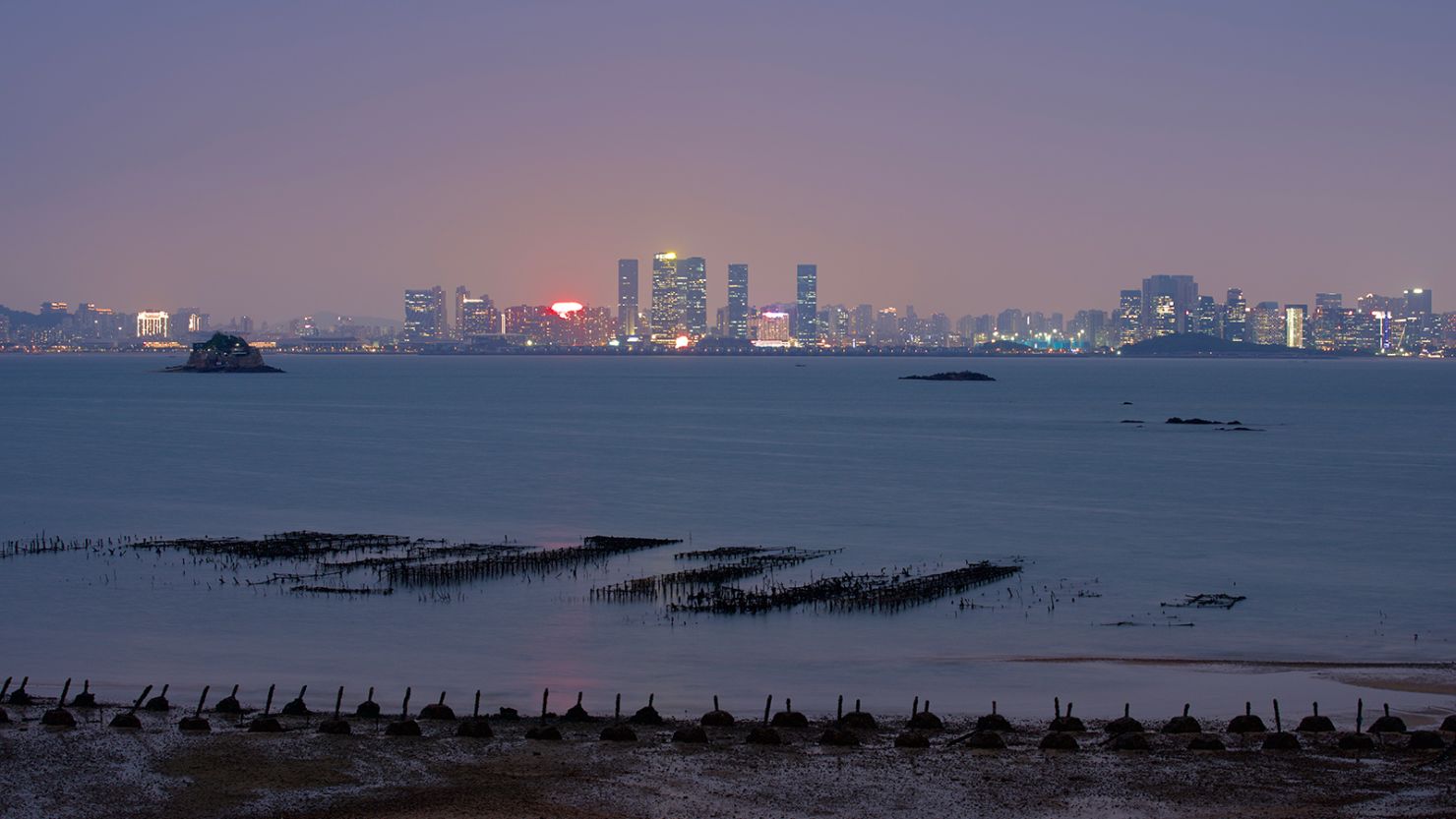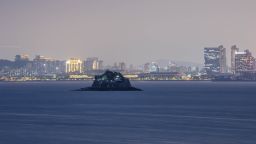Two weeks after two Chinese fishermen drowned while being chased by Taiwan’s coast guard, tensions remain high in the waters around Kinmen, a group of outlying islands controlled by Taiwan but nestled just a stone’s throw from the shores of China.
China’s coast guard ships are now a common sight in the area, making increasing incursions into Taiwan’s prohibited or restricted waters – a designation Beijing now rejects.
Signs of the most recent flare-up are also visible in the harbors of Kinmen, where dozens of fishing boats lie idle following temporary restrictions on fishing activities.
Boat tours around Kinmen are still operating, though under a closer watch by Taiwan’s coast guard. Officers visit each boat before they set sail and warn captains not to stray into Chinese waters.
But for most residents in Kinmen, which?for decades had been a military frontline for Chinese aggression, it’s life as usual.
It’s low season for tourists. Residents go about their business on quiet streets shrouded in fog and rain. In the late afternoon, teenagers stream out of a high school, which has reopened after the Lunar New Year break.
“We don’t feel nervous at all. This is none of our business. It’s just Taiwan and mainland China having a fight,” said Hung Ho-cheng, a retired businessman, summing up the kind of nonchalance that is commonplace on an island that has long been a geopolitical flashpoint.
Standing next to an overgrown military bunker, Hung said he had grown used to living with the remnants of war, fought between Mao Zedong’s Communist regime and Chiang Kai-shek’s Nationalist government which fled to Taiwan from mainland China in 1949.
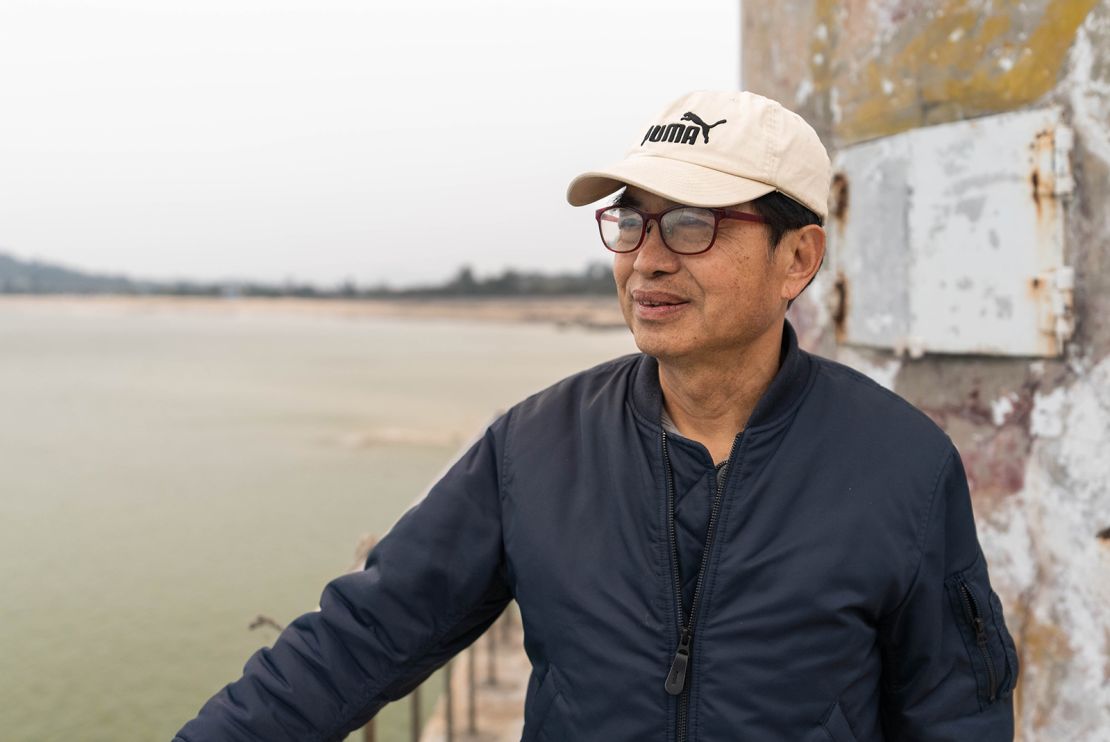
For much of the Cold War, Kinmen was the site of ferocious attacks by?Mao’s Communist forces, which tried to seize control of the islands with multiple amphibious assaults and repeated shelling. By the time the bombardment faded in the late 1970s, an estimated 1 million artillery shells had struck Kinmen, which covers an area roughly the same size as New York’s Staten Island.
“In the past, whenever a mainland ship crossed the median line (into Taiwan’s waters), our cannons would fire toward it without warning,” Hung said. “That was the environment we grew up in.”
The shots, he added, would land in waters in front of the Chinese ships to drive them away.
At the turn of the century, when tensions eased and relations between Beijing and Taipei briefly blossomed, both sides saw Kinmen as a potential conduit for peaceful exchange. In 2001, a ferry service was launched between Kinmen and Xiamen, the closest city on the Chinese coast.
As relations warmed, Taiwan opened its doors to Chinese tourists in 2008. Kinmen instantly became a popular attraction for visitors from China. It also attracted Taiwanese tourists and offered sightseeing boat tours in surrounding waters.
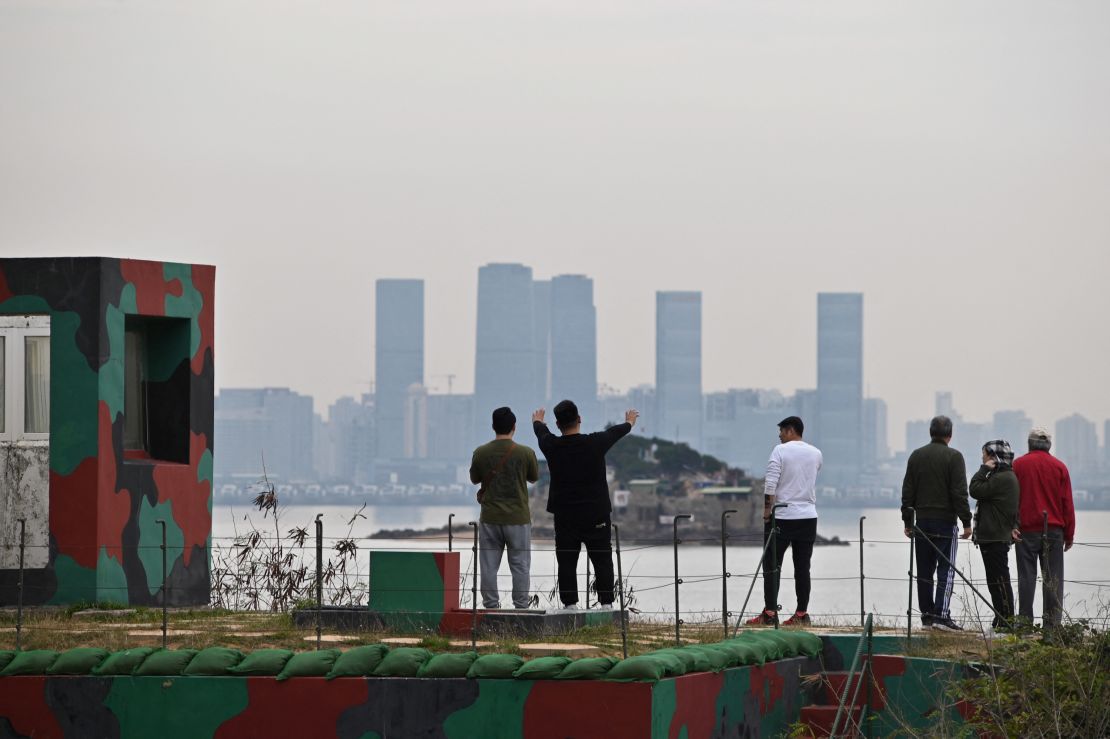
But now, a new and far more frosty climate appears to be setting in around Kinmen.
Beijing, which blames Taipei for the death of the two Chinese fishermen, has expanded its presence in the area in a move analysts say is aimed at eroding Taiwan’s control of the waters.
Taiwan’s security agencies believe China has been using the incident to advance its “gray zone” tactics against Taiwan, referring to coercive or aggressive state actions that stop short of open warfare.
At a recent briefing, a senior Taiwan security official said?the island’s coast guard is constantly evaluating the need for reinforcements around Kinmen, but has so far maintained its current posture to avoid escalating tensions.
On Monday, five Chinese coast guard ships entered prohibited or restricted waters around Kinmen, but left shortly after being warned away by Taiwan’s coast guard, according to a Taiwan minister.
“The political significance is high, which is a form of a declaration of sovereignty,” said Kuan Bi-ling, head of Taiwan’s Ocean Affairs Council.
Last week, Chinese coast guard officers boarded a Taiwanese tour boat for inspection, an unprecedented move that startled passengers on board.
“It’s super scary,” a passenger said in a widely circulated?video?upon returning to Kinmen under the escort of a Taiwanese coast guard ship. “(I was) so afraid that I wouldn’t be able to come back to Taiwan.”
Kuan, the minister, said the incident triggered “panic” among Taiwanese people.
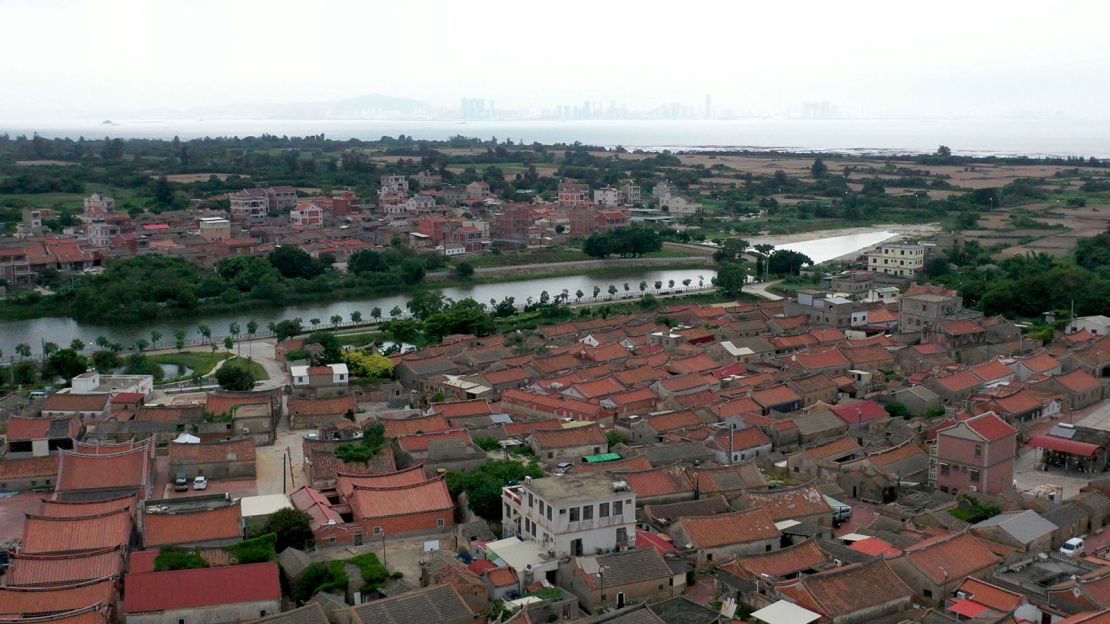
Tour operators in Kinmen worry that inspections by China’s coast guard will scare away tourists.
“If this happens a second or third time, it will definitely impact Kinmen’s tourist industry,” said Chang, a tour boat operator who only gave his surname.
Currently, Kinmen is already facing a lull in tourists due to the foggy season. “If the situation intensifies and tourists are reluctant to board our boats, our business will become very bleak,” he said.
Chang said he was not worried about the current level of tensions, pointing to the fact that the ferry services between Kinmen and Xiamen are still in operation.
But he is concerned that a miscalculation may spiral into conflict. “This is not what our people want. If there is conflict, both sides will be devastated,” he said.
Wu Chia-chiang, chairman of the Kinmen County Tourism Association, said many Kinmen residents felt powerless because they had little influence over the state of cross-strait relations.
“We don’t want this incident to become a political issue. It was an accident, and we hope it can be resolved peacefully,” he said, referring to the capsizing of the Chinese fishing boat.
“Kinmen used to live under artillery shelling. We grew up under gunfire, and we are very worried that war could break out in Kinmen again.”



